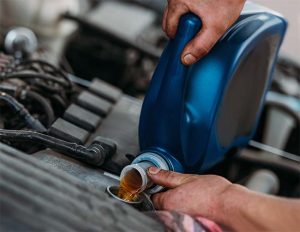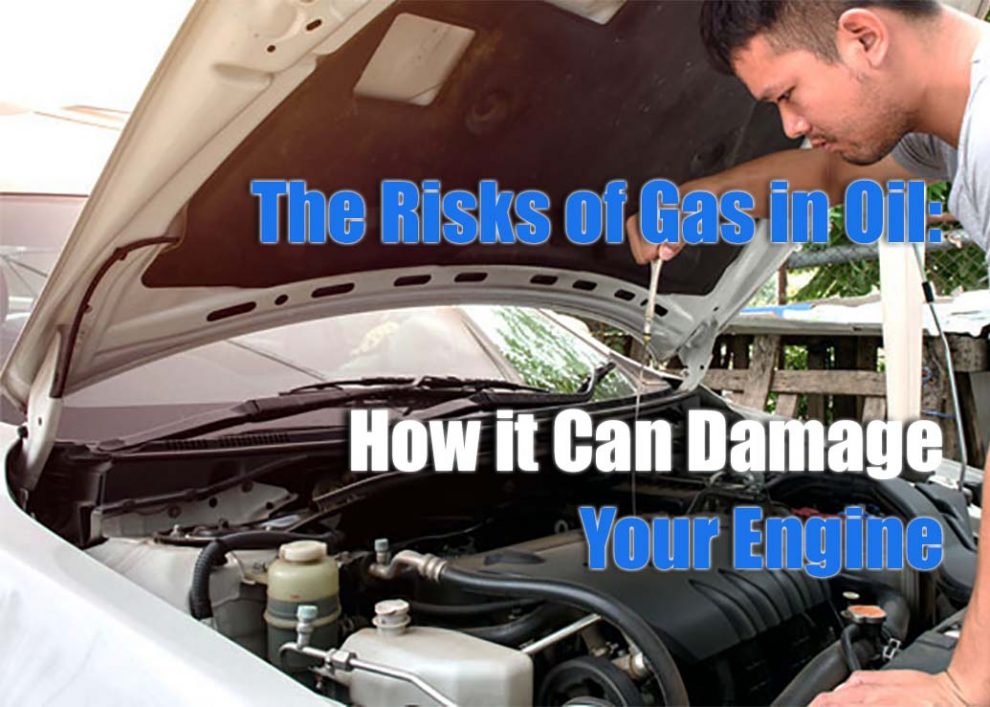Gas can enter your engine oil for several reasons. Common causes include a faulty fuel injector, which may leak fuel into the engine’s combustion chamber, or a malfunctioning carburetor, which can cause an overly rich fuel mixture that doesn’t burn completely. Additionally, a damaged fuel pump or pressure regulator, as well as worn piston rings or valve seals, can contribute to gas in oil issues.
How Can Gas in Oil Damage Your Engine
 When gas mixes with engine oil, it can cause a range of problems for your engine. The diluted oil loses its viscosity, compromising its ability to lubricate and protect engine components from friction and wear. This can lead to increased engine wear, decreased performance, and even engine failure in extreme cases. Additionally, the presence of gas in oil can cause the oil to become more volatile, increasing the risk of engine overheating and damage to the engine’s seals and gaskets.
When gas mixes with engine oil, it can cause a range of problems for your engine. The diluted oil loses its viscosity, compromising its ability to lubricate and protect engine components from friction and wear. This can lead to increased engine wear, decreased performance, and even engine failure in extreme cases. Additionally, the presence of gas in oil can cause the oil to become more volatile, increasing the risk of engine overheating and damage to the engine’s seals and gaskets.
Identifying the Presence of Gas in Your Engine Oil
There are several signs that may indicate the presence of gas in your engine oil. One common indicator is a strong gasoline odor coming from your engine or oil dipstick. Other symptoms can include decreased engine performance, poor fuel economy, excessive exhaust smoke, and a check engine light on your dashboard. If you suspect that gas has contaminated your engine oil, it’s crucial to have your vehicle inspected by a professional mechanic as soon as possible to avoid further damage.
Preventing Gas Contamination in Your Engine Oil
To minimize the risk of gas in oil issues, it’s essential to perform regular vehicle maintenance and address any underlying problems promptly. Schedule routine oil changes and use high-quality oil that meets your vehicle manufacturer’s specifications. Inspect your fuel system components, such as the fuel injectors, carburetor, fuel pump, and pressure regulator, for signs of wear or damage, and replace them as needed. Additionally, check your vehicle’s piston rings and valve seals for wear, as these can contribute to gas in oil issues if they become worn or damaged.
What to Do if Gas is Found in Your Engine Oil
If you discover gas in your engine oil, it’s important to take immediate action to prevent further damage to your engine. First, consult a professional mechanic to diagnose and repair the root cause of the issue, such as a faulty fuel injector or worn piston rings. Once the underlying problem has been addressed, have your engine oil and filter changed to remove the contaminated oil and replace it with fresh, clean oil. Furthermore, consider upgrading your vehicle’s air intake system to the Best Cold Air Intake for Toyota Corolla. This will provide your engine with a more efficient air-fuel mixture, potentially preventing similar problems in the future. Monitor your vehicle’s performance closely after the repairs and oil change to ensure that the issue has been resolved and your engine is operating at optimal efficiency.
By understanding the causes and consequences of gas in engine oil, you can take the necessary steps to prevent and resolve this issue, protecting your engine’s performance and longevity in the process. Regular vehicle maintenance and prompt attention to potential issues are key to maintaining a healthy engine and avoiding the damaging effects of gas in oil.


Add Comment